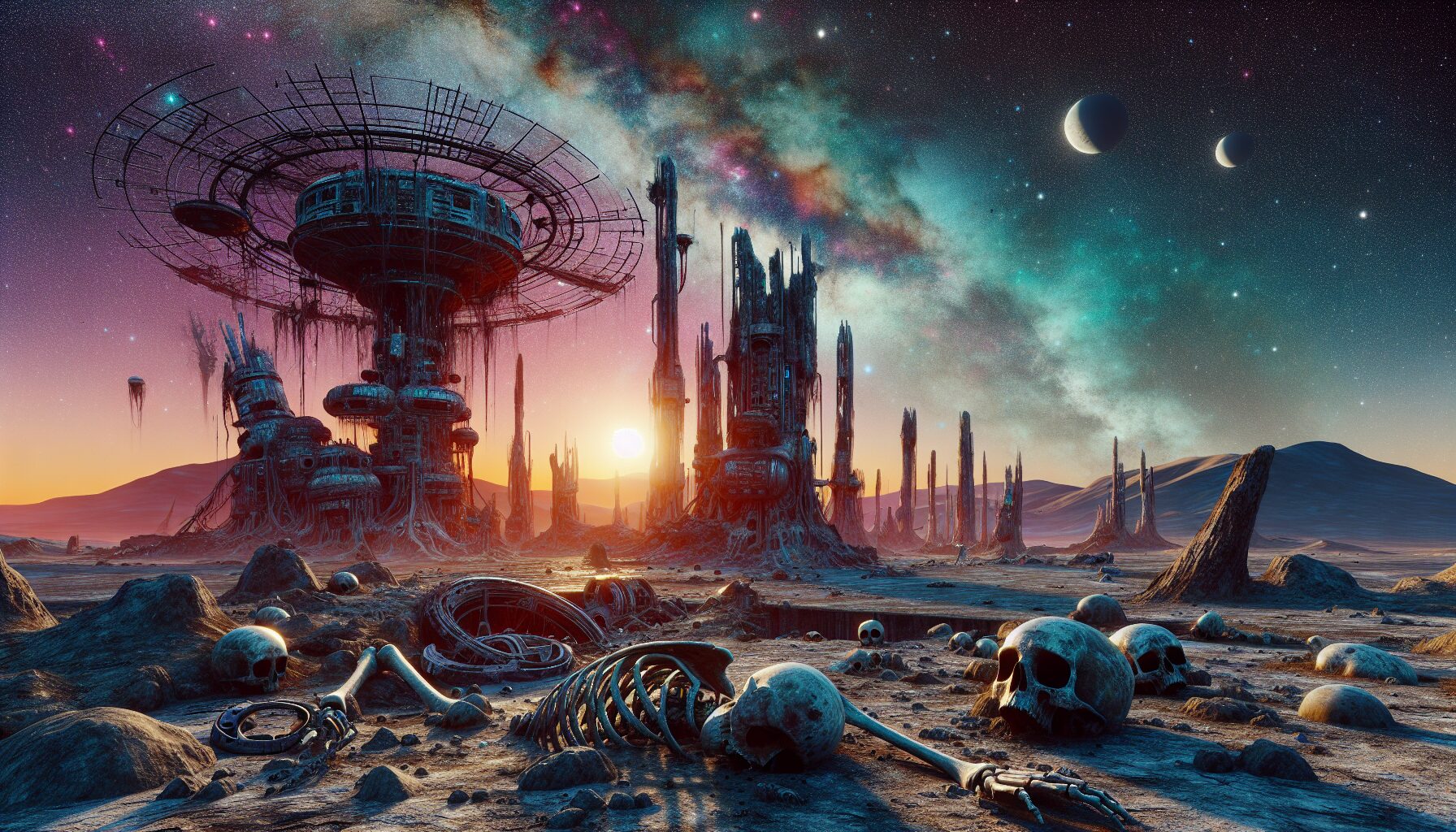The search for alien life has long been a topic of fascination and intrigue. Despite vast efforts, the evidence of extraterrestrial life remains elusive. The enduring question is not only whether life exists elsewhere in the universe but also why it might already be extinct.
The Odds of Survival
Stephen Hawking once pondered the existence of alien life, suggesting that intelligent life, if it exists, might not last long enough to reach out to us. He remarked,
“It might be that primitive life is very common and intelligent life is fairly rare. Some would say it has yet to occur on Earth.”
The universe is a vast, incredibly harsh environment where the conditions for life are temporary and precarious. Craig Hogan, director of the Fermilab Center for Particle Astrophysics, notes,
“While life on Earth might seem robust, it has only existed for about 0.03% of the history of the universe.”
In this context, the fragility of alien life becomes evident.
The Drake Equation and the Great Filter
The Drake Equation seeks to estimate the number of active, communicative extraterrestrial civilizations in the Milky Way galaxy. Yet, a concept that partners with this equation is the “Great Filter” theory. This theory posits that at some point from pre-life to a type III civilization on the Kardashev scale, there’s a step that is unlikely or impossible for life to get past. If this filter is behind us, humanity is unique and rare. If it is ahead, alien civilizations might have succumbed to it.
The Great Filter suggests that many alien races could have reached technological singularity or self-destruction before becoming spacefaring. As the physicist-environmentalist James Lovelock posited,
“Gaia is an evolutionary story driven not by natural selection alone but by the whole planet, the biota and the Earth, and we are one of those species.”
This interconnectedness is both a strength and a potential vulnerability.
Nurturing or Neglecting Advanced Life
Beyond environmental factors, technological failures, wars, or cosmic events could have led to the extinction of intelligent extraterrestrial life. An advancing civilization might become more capable of self-destruction before mastering cosmic survival. As Carl Sagan wisely noted, “The universe is a pretty big place. If it’s just us, it seems like an awful waste of space.” Despite this space, advanced civilizations might not endure.
In conclusion, the potential for alien life is significant, yet its longevity might be inherently threatened. Whether through environmental challenges, self-destruction, or cosmic misfortune, the survival of intelligent, alien organisms faces many hurdles, leading to the possibility that many such civilizations might have already vanished before we even had the chance to learn of their existence.

Comments